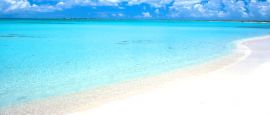Antigua and Barbuda History, Language and Culture
History of Antigua and Barbuda
Originally called Wadadli or Waladli by its Amerindian settlers, Antigua and Barbuda’s earliest inhabitants were the Siboney people from around 3100 BC. The Arawak Indians arrived in the first century, followed by Caribs who settled throughout the Caribbean.
Christopher Columbus spotted Antigua on his second voyage to the West Indies in 1493 and without landing named it Santa Maria de la Antigua after a saint.
Sir Christopher Codrington, the first settler on Antigua, arrived in 1684 and introduced sugar cultivation to the islands. By the middle of the 18th century there were hundreds of plantations as Antigua became one of Great Britain’s most lucrative colonies, it economy reliant almost exclusively on sugar and, until its eventual abolition in 1834, slavery. Many modern day Antiguans are descended from slaves brought to the island from Africa.
In 1860, Barbuda was annexed to the territory of Antigua, with the small island of Redonda becoming part of Antigua 12 years later.
Admiral Nelson developed British naval facilities at English Harbour in 1784 and Nelson’s Dockyard survives as the last example of a Georgian naval dockyard. A strategic port and valuable commercial colony, by the end of the 18th century Antigua was known as the ‘Gateway of the Caribbean’.
Until the development of tourism during the last century, Antigua’s economy struggled after the demise of the sugar industry. Economic problems contributed to the growth of an independence movement and internal autonomy was achieved in February 1967 when Antigua, Barbuda and Redonda became an Associated State of the Commonwealth.
In 1981, the country became fully independent as Antigua and Barbuda with HM The Queen currently head of state. In Parliament, the populist Antigua Labour Party (ALP) dominated party politics until its historic defeat in 2004, which saw the Caribbean’s longest serving elected government toppled.
Prime Minster Gaston Browne returned the ALP – now the Antigua and Barbuda Labour Party – to power in the June 2014 elections.
Did you know?
• The highest point on Antigua is Mount Obama, known as Boggy Peak until 2009 before it was renamed in honour of the US President.
• English is the official language although many locals speak Antiguan Creole. The Barbudan accent is slightly different to the Antiguan.
• The national sport is cricket with several West Indian superstars hailing from Antigua including Sir Vivian Richards, Andy Roberts and Richie Richardson.




 You know where
You know where